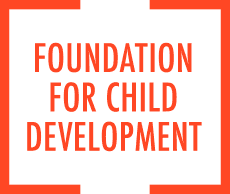https://www.fcd-us.org/strengthening-diversity-and-quality-of-the-ece-workforce/
The early care and education (ECE) workforce plays a vital role in promoting young children’s learning, socio-emotional development, and positive child outcomes. Early educators have experienced increasing difficulty in providing high-quality learning environments amidst a myriad of challenges that were compounded by the COVID-19 pandemic and jeopardized their well-being and the status of the workforce.
This issue of The Learning Curve highlights the new 2021 Paper Series authored by early-career researchers from our Young Scholars Program, funded by the Foundation, and edited by the Urban Institute. The latest Urban Wire blog post, COVID-19 Relief Legislation Offers a Historic Opportunity to Support the ECE Workforce, summarizes how this new research offers evidence-based solutions for federal, state, and local policymakers and key stakeholders to leverage to inform their policy priorities aimed at strengthening the ECE workforce through the distribution of the American Rescue Plan and other funding.
Foundation for Child Development Grants in Action
Assistant Teachers in Head Start: Important Drivers of a Diverse and Competent Workforce
Assistant teachers play an important role in Head Start and other ECE programs. The report’s findings shed light on the everyday contributions Head Start assistant teachers make to classroom quality, measured through teacher-child interactions. Findings have implications for policymakers, education administrators, and practitioners interested in understanding the importance of assistant teachers to the quality of Head Start programming, and particularly their role in supporting the growing population of dual language learners in Head Start. The findings have implications for policy development that positively supports practices that train, develop, and retain assistant teachers in the workforce pipelines of Head Start and other ECE settings.
Early Care and Education Workforce Stress and Needs in a Restrictive, Anti-Immigrant Climate
According to this report, the ECE workforce experiences high levels of stress, partly because they earn low wages and have limited access to professional and personal resources to support their well-being. In addition, the ECE workforce experiences sociopolitical stressors. This descriptive study examines one specific set of sociopolitical stressors — those arising from the restrictive, anti-immigrant climate.
The report suggests that to strengthen educators’ self-perceived efficacy in calming children’s distress in an anti-immigrant climate, multiple sources of school-based support are necessary: strong organizational communication, extensive informational support, and acknowledgment of immigration-related stressors among all workforce members.
Do Novice Kindergarten and First Grade Teachers Feel Prepared to Address Student Absenteeism?
Evidence from a Statewide Survey
This report notes that children in kindergarten and first grade are missing more school than at any other point during the elementary years. This is the first known study to examine the role teacher preparation programs play in teachers’ perceptions of and knowledge about policy and practices to address absenteeism.
